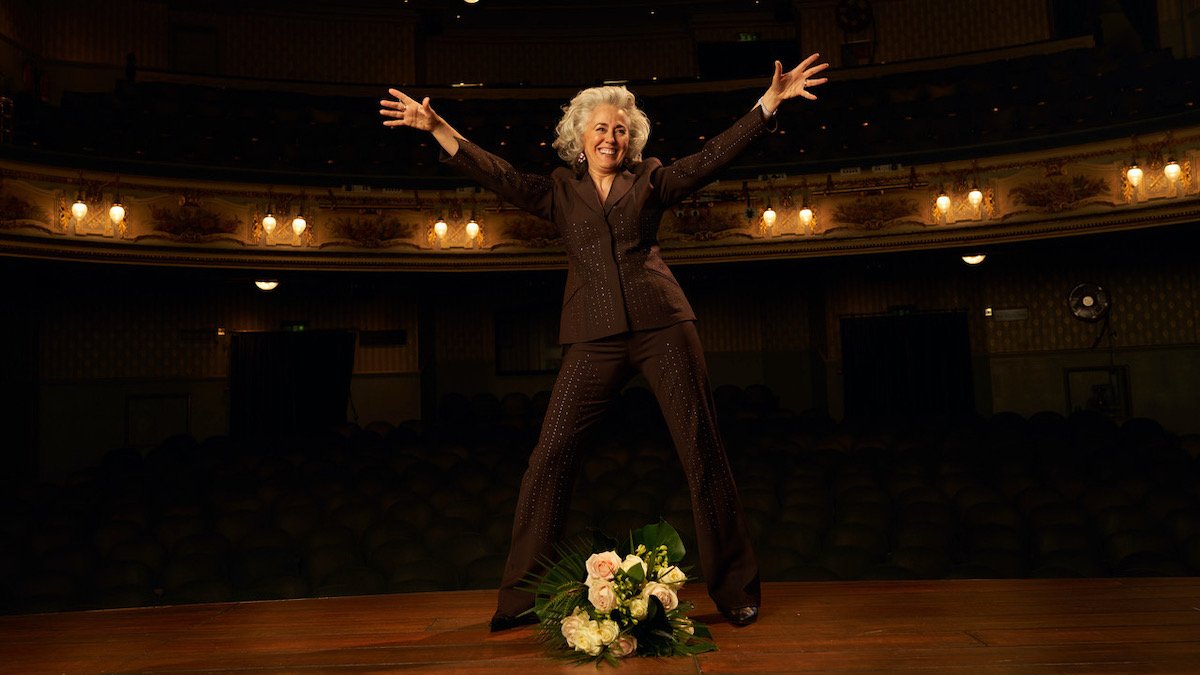
Anna Longaretti’s Sex Cells, a funny and poignant play set in the busy call centre for a sex toy manufacturer, has delighted audiences worldwide since its London debut in 2013. Featuring four fascinating, complicated and deeply human women – plus one meek and slightly old-fashioned man – Sex Cells asks big questions with humour, warmth and intelligence. We caught up with the author to discuss the play and its themes.
…
For those who don’t know the play, how would you summarize Sex Cells?
It’s a dramatic comedy about motherhood. It considers, longing, birth, death, love, relationships, despair, fear of intimacy… in other words, it covers pretty much all human emotions. And, at one point, Lily and Mr. Causeway discuss the existential question: what it means to be alive – albeit while measuring the cavity of a blow-up doll.
Where did the idea come from? What inspired you to write this play?
I used to do some improvisational acting and I watched a group develop a scene that was set in a sex line call centre. So, although it wasn’t the same as a call centre that sells sex toys, it’s where the idea came from. I didn’t want my characters “talking dirty” because that really would have detracted from the theme of motherhood, and anyway I would have had to spend a fortune ringing the lines in order to find out what they actually say!
I didn’t really know what I wanted to write about, I just had a feeling. I seem to have to write a whole play to find out what it is I want to say. It’s a really long-winded way of working which involves hundreds of rewrites and ruthless editing but it’s the only way I know.
It’s easy to fall in love with your characters and never let anything bad happen to them but that doesn’t make for good drama, it doesn’t make for any drama. So Sylvie’s character had to be put under pressure, and where better to place her than in an environment where people call wanting to enjoy the pleasures of sex while her sex life is regimented according to her optimum chances of conception.
The title is a clever double entendre. Can you talk a bit about the phrase “Sex Cells”?
I think of it as a triple entendre – I know that’s not a thing – because I visualised the women in cell-like prisons as well as the play on words.
I was advised by a few people to change the title because it might cause me problems down the line. They were right. You can imagine the kind of traffic I got when I tried to set up a Sex Cells website! Just a couple of weeks ago, an am dram company asked me if I’d mind If they changed the title so that they could stage it in their local church hall. I didn’t mind a bit and gave them a couple of alternative options.
As problematic as I imagined the title might be I decided to stick with it because… it just worked.
The four women in Sex Cells vary widely in their opinion and experience of motherhood. Which character resembles you most closely, and which do you wish were more like you? Has your opinion of the characters changed in 10 years?
Their feelings about motherhood are mostly my own feelings. The dream Sylvie has about the boy with red hair that was parted on the side, was my dream. I woke up from it believing I really had a son, and it took me a while to adjust to the fact that he didn’t exist.
I only have one daughter, but at times I felt like Janice, who has five kids. I think it’s easy to lose oneself to motherhood. At one point, she says, “I’m halfway through a book I started in 2010”. I’m sure many other mothers can identify with that.
Before having my daughter, I had romantic notions of motherhood, like Sylvie does. I imagined myself giving birth naturally (I didn’t, she was delivered by C-section), cradling my daughter in my arms (she didn’t like being cradled, she liked to remain upright) and going back to work after three months maternity leave, (it took six months before I was ready to leave her with someone else). So, nothing turned out as I’d imagined it would. The experience of seeing her for the first time was a real shock too: realising that she wasn’t an extension of me but a separate person. I wrote the play, in part, to find out if other women could identify with that.
Tiffany represents the days of sexual discovery when we’re preoccupied with trying to find love. She also represents the women who don’t have a maternal instinct. It’s tragic that Tiffany falls pregnant at the drop of a hat while Sylvie has to go through so much to try and conceive. That paradox really made an impression on me as I was developing the play.
But Lily is the most like me in temperament. People rarely say what they really mean, they tend to hold back or filter what they say. Lily isn’t very practiced at that, it’s her strength and her weakness. I can be a bit like that. Before I know it, something I’ve thought has come out of my mouth and although it can be funny, there are times when I wish I’d put a sock in it.
That fact made her the easiest character to write because she doesn’t say one thing and mean another. Writing characters that are more nuanced take time for me to understand. I have to spell out their intentions to myself and then weave a subtext for them later.
The play is a constant contrast of pathos and comedy; characters can be working through very difficult and real conflicts and then suddenly answer the phone to matter-of-factly discuss graphically sexual products and services. How did you find the balance? Did you set out to write a comedy or a drama, or a bit of both?
I wanted to write something serious, but I think audiences should be entertained. I’m not good at sitting still for any length of time, so when I go to the theatre I always pray there will be a bit of light relief.
Another reason is that when I’m writing there’s a voice at the back of my head saying, “Why would anyone want to see this?” It’s not an uncommon phenomenon; it’s called the critical voice and although it might sound destructive, it can be very useful when it comes to editing.
It’s my job to try and entertain no matter what I’m trying to say and so the heavier the topic or situation, the more I’m drawn to try and punctate the tension with something funny. Audience members told me that they felt like they were on a roller coaster, laughing one minute and crying the next. I liked hearing that.
Do you have a favourite moment from the show?
I like the line where Tiffany says, “It’s mental, really, when you think that some women died having kids, and others died trying to get rid of ‘em.”
I like the juxtaposition of something profound being said by the most, seemingly unaware, person in the play. It’s as if she’s only just made the connection and to be honest, it was like that for me when I wrote it, even though it’s such an obvious statement.
Do you have a memory of a particular production you’ve seen?
The very first production staged by students at the University of Birmingham. I’ve come to writing quite late in life, and didn’t have a clue about the fact that my play might have a life after its first production. So, it seemed incredible to me that people would buy my play, learn the lines, and then build a set and perform it. When I arrived at the uni theatre, young people were wearing sweatshirts with “Sex Cells” written on one side and my name on the reverse. I was totally blown away.
What advice would you have for companies looking to stage Sex Cells?
The simplest and most obvious thing. I do endless edits in order to weed out repetition. I like to say a thing once because I think it keeps the audience interested and it means they can do a bit of the work. I like watching TV shows that make me work so I’m thinking about that when I’m writing. But it means that the words really count, and if words are lost the play makes no sense. I understand how difficult it must be with the constraints of everyday life to learn an entire play by rote. But learning lines until you don’t have to think will make performing the play very much easier.
Nine years have passed since Sex Cells made its world premiere, yet the play remains remarkably fresh, as if it had been written this morning. In what ways have our views about sex and motherhood changed, and in what ways have they remained the same?
Firstly, thank you for the compliment.
I don’t think much will have changed apart from there may be a little more understanding and open discussion.
I suffered from post-natal depression after having my daughter, and it felt like there was some kind of plot to hide the truth about being a new mum because if people knew the truth, they wouldn’t do it.
Looking back, I was clearly in a fragile state of mind, but not nearly as fragile as my own mother. After giving birth to me, my mother’s depression was so severe she was hospitalised. I wondered why no one had warned me about the difficulties I was facing. On the first days home alone with her, I found I couldn’t get out of the front door until about 4 in the afternoon. What with washing her, myself, feeding her, myself, then feeding her again, I wondered where my life had gone. I portrayed all of this through Sylvie.
Nowadays there’s Mumsnet; I imagine it can take away some of the confusion and loneliness and is a good source of information and help.
Lily couldn’t understand why her son wanted more of a connection with her. She was a product of her own upbringing, as was Mr. Causeway, as we all are. I’m astounded by how things that happened when growing up define and shape how we respond in our adult lives. I’m interested in the ways we try to escape our past – whether they be good or bad – but can’t.
What do you hope theatregoers and theatre makers take away from the experience of seeing or presenting Sex Cells?
The play seems to touch audience and cast in different ways. What really surprised me was seeing young men so choked at the end of the play they could hardly speak.
An actor told me that after one performance, a man from the audience approached her and told her that his mother had recently died, and that during the show he got to hear her one more time. Several Lily’s and Sylvie’s have told me how much the play impacted on them while they were playing those characters.
I can’t always identify with the ways in which people have responded to seeing it but, going by the feedback, some people have been deeply touched, and that makes me very happy.
…
For more information about licensing a production of Sex Cells, visit Concord Theatricals in the US or UK.

Newly Available for Licensing – January 2026 (UK)

Newly Available for Licensing – January 2026 (US)

